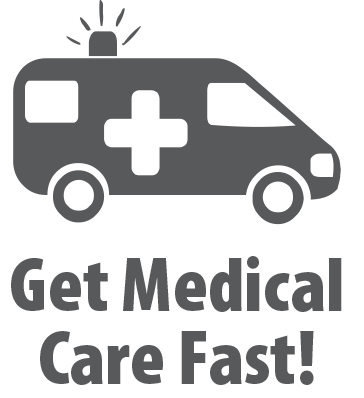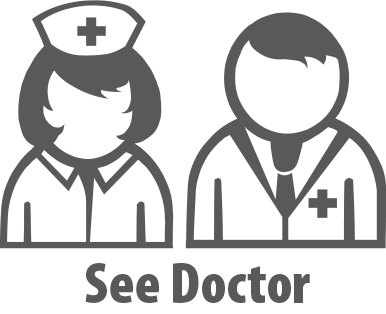Heart & Circulation Problems
Heart Palpitations
Signs & Symptoms
Palpitations can be felt in the chest, throat, or neck. With them, it feels like the heart is pounding, racing, and/or fluttering. It can feel like the heart has skipped a beat.
Causes
Most of the time, palpitations are not a serious problem. Common causes include:
• Anxiety. Fear. Stress. Hyperventilation.
• Caffeine. Diet pills. Nicotine. Drugs.
• Exercise.
• Medicines. Examples are beta-blockers, some asthma and cold medicines, and thyroid pills.
Other causes are:
• An arrhythmia (heart rate or rhythm disorder).
• Mitral valve prolapse (MVP). This is a heart valve problem. It may be treated with medicine. It is not usually a serious condition.
• Anemia.
• Hyperthyroidism.
• Low blood sugar.
Treatment
Treatment depends on the cause.
Questions to Ask
Question
01
With palpitations, is any heart attack warning sign present?

Get medical care without delay. If symptoms are life threatening go to the ER or call 9-1-1. Don’t call 9-1-1 or use the ER if symptoms do not threaten life. Ask your doctor ahead of time where you should go for a problem that needs prompt care, but not emergency care.
x
Question
02
Do any of these problems occur?
• Fainting. Feeling faint or dizzy. Cool, clammy skin.
• Pulse of 150 or more beats per minute.
• New onset of a very irregular heartbeat and a history of a heart condition.
• Within 24 hours, palpitations occur 3 or more times. Each one lasts at least 10 minutes.

Get medical care without delay. If symptoms are life threatening go to the ER or call 9-1-1. Don’t call 9-1-1 or use the ER if symptoms do not threaten life. Ask your doctor ahead of time where you should go for a problem that needs prompt care, but not emergency care.
x
Question
03
With palpitations, are any of these problems present?
• Signs of hyperthyroidism.
• Symptoms persist for hours or days.
• Heart disease risk factors
• A person with an arrhythmia has new or worse symptoms.

You should be seen by your doctor for medical advice. Contact your doctor or health care provider to find out how soon you should be seen.
x
Self-Care / Prevention
• If palpitations occur with exercise, stop the activity. Rest. When you exercise again, gradually increase how long and how intense you do the activity.
• To relieve stress and anxiety, do relaxation exercises.
• Limit or avoid caffeine, nicotine, and alcohol.
• Don’t take cold/allergy medicines. Don’t take appetite suppressants.
• Call your doctor if rest doesn’t help or if palpitations occur again and again.
Resources
The American Heart Association
800.AHA.USA1 (242.8721)
National Heart, Lung, and Blood Institute (NHLBI)

Download an offline pdf file.
2021 © American Institute for Preventive Medicine - All Rights Reserved. Disclaimer | www.HealthyLife.com








